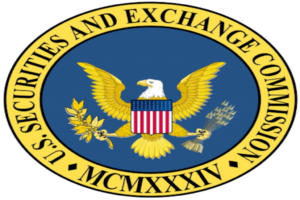
Securities and Exchange Commission Chair Mark Uyeda announced the implementation of a “blueprint” designed to slow the Commission’s rulemaking process while improving cost efficiency. Such a “blueprint” entails longer comment periods as well as the rejection and reduction of rules proposed under the leadership of former SEC chair, Gary Gensler.
According to Uyeda, Gensler was too quick to enact rules. The “shortcuts” Gensler took led to numerous legal challenges which posed unnecessary expenses, according to Uyeda.
The Acting SEC chair now wants to adopt a different approach to SEC rulemaking- one that he believes will be more efficient and effective in its purpose. “Turning to future rulemaking, the Commission should act like a super-sized freighter, not a speed boat — and that means returning to a smoother regulatory course than the rapid changes that have been promulgated over the last four years, “Uyeda said.
The Administrative Procedure Act requires proposed rules to have a “notice and comment” period. While the duration of such a period is not explicitly provided, a comment period of at least 60 days has been endorsed by the Administrative Conference of the United States for significant regulatory actions. However, Uyeda pointed out that a large number of proposals were afforded comment periods well below 60 days under Gensler. “45-day, and even 30-day, comment periods were the norm… which “represented a significant deviation from everything that I had been taught about rulemaking as a member of the staff in my nineteen years with the Commission,” according to Uyeda.
Uyeda’s Steps Toward Implementing the “Blueprint” to Reform SEC Rulemaking
Uyeda has already taken a number of actions in pursuit of his “blueprint’s” implementation. The SEC Chair granted private fund advisers additional time to comply with newly expanded reporting requirements and extended compliance deadlines for a marketing rule aimed at environmental, social, and governance (ESG)-focused funds.
He also directed his staff to develop recommendations on re-proposing certain aspects of the recently-adopted Form N-PORT reporting requirements. This requirement mandates that certain funds regularly report their holdings to the SEC, with last year’s update requiring more frequent and detailed disclosures.
“Commenters raised concerns about more-frequent public disclosure of funds’ portfolio holdings,” Uyeda said in connection to the Form N-PORT changes. “Among other issues, are these concerns heightened by continuing advances in artificial intelligence?”
Uyeda also mentioned a possible change to crypto regulations including the added requirement for investment advisers to place customers’ crypto assets with a qualified guardian.
Ultimately, Uyeda emphasized how SEC rulemaking must “respect the limits of our statutory authority.” He understands that while this may take some time and patience, it is significantly more important that the SEC “take the time to do things carefully and methodically, rather than rush and risk actions that are not fully thought through.” This approach will ultimately help the SEC mitigate legal challenges, reducing costs, and most importantly, ensure that the agency stays within the scope of its authority. ![]()

